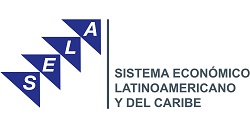BACKGROUND
Natural disasters in Latin America and the Caribbean continue to evidence the need to strengthen the preventive culture in society as a whole, but especially of micro, small and medium-sized enterprises (MSMEs) so as to ensure continuity of business and operations after disasters. This approach has prompted the creation of meeting spaces for the public and private sectors and the forging of partnerships in many countries in the region in order to mitigate the impact of disasters on the trade and exports sectors.
The social and economic impacts of disasters in the region has considerably increased, and such increase is not the exclusive consequence of climate change, but it is also associated with the levels and forms of occupation of the territory. Therefore, it can be said that such impacts are not the result of more and worse disasters, but of unsustainable development models.
Continuity of business and operations, understood as the capacity of an organization to continue providing services and conducting business at acceptable levels after an interruption of work, is aimed at the survival of the organization, and at prioritizing in advance which activities should continue to operate or recover in the shortest possible time in order to minimize the loss of markets, consumers and suppliers, among others. For this reason, protection measures for risk reduction are not enough, it is also necessary to define alternate strategies for operation located at a prudent distance from the site with potential of being affected by a disaster. The preparation in this area must be consistent and include all the staff of the organization or company.
Issues regarding this matter have been gathered in the best practices and international standards such as those of the Business Continuity Institute, NFPA 1600 and ISO 22301, which made it necessary to standardize their contents. Continuity of business and operations in Latin America and the Caribbean is crucial for the region, because it is vulnerable to different natural, anthropogenic or technological threats.
Also, there is a methodology basis for maintaining a programme on continuity of business and operations, which is applicable to both the private and the public sectors. It includes: i) Appropriate empowerment at the different levels of the organization to endow governance – management and administration – to the permanent process of continuity of business and operations; ii) Identification of priority and urgent activities for recovery, as well as alternate work places and facilities; iii) Protection of information and databases, as well as development of interoperability of communications; iv) Establishment of strategies for continuity and recovery of activities; and v) Updating of plans and programmes for verification and assurance of compliance with goals and objectives.
Taking into consideration the holistic approach that continuity of business and operations attaches to its area of action, it is no surprise that this discipline is gaining higher status and priority in the countries of the region. However, challenges remain, such as its institutionalization throughout Latin America and the Caribbean and throughout all the sectors of society, as well as the recognition of the importance of working with a strategy like this, because the fact that an organization has not been affected by a disaster, crisis or contingency that disrupts its operations does not make it immune to disaster risk in the region, or exempts it from the responsibility of being permanently prepared to face a worst-case scenario.
The organizations that must adopt this strategy are not only large companies or multinational enterprises, they also include MSMEs. And hence the need to train them in continuity of business and operations, so that they can ensure their commercial and exporting activities in adverse conditions after the occurrence of a disaster.
The subject of continuity of business and operations has been addressed by the Permanent Secretariat of SELA, which has conducted to date five regional meetings on Public-Private Partnerships for Disaster Risk Reduction in Latin America and the Caribbean, focused on various issues such as protection of public and private investment in case of disasters, insurance against disasters, corporate social responsibility, and continuity of business and operations. On this latter issue, the Permanent Secretariat drafted two specific base studies that are very useful for MSMEs: “Continuity of Operations (COOP) and Continuity of Government (COG): Implementation guide for local governments and enterprises” (SP/III-SRASPPGRD/DT N° 2-14) and “Continuity of business and operations during disasters in Latin America and the Caribbean: Balance and recommendations” (SP/II-SR-ASPPGRD/DT Nº 2-13).










